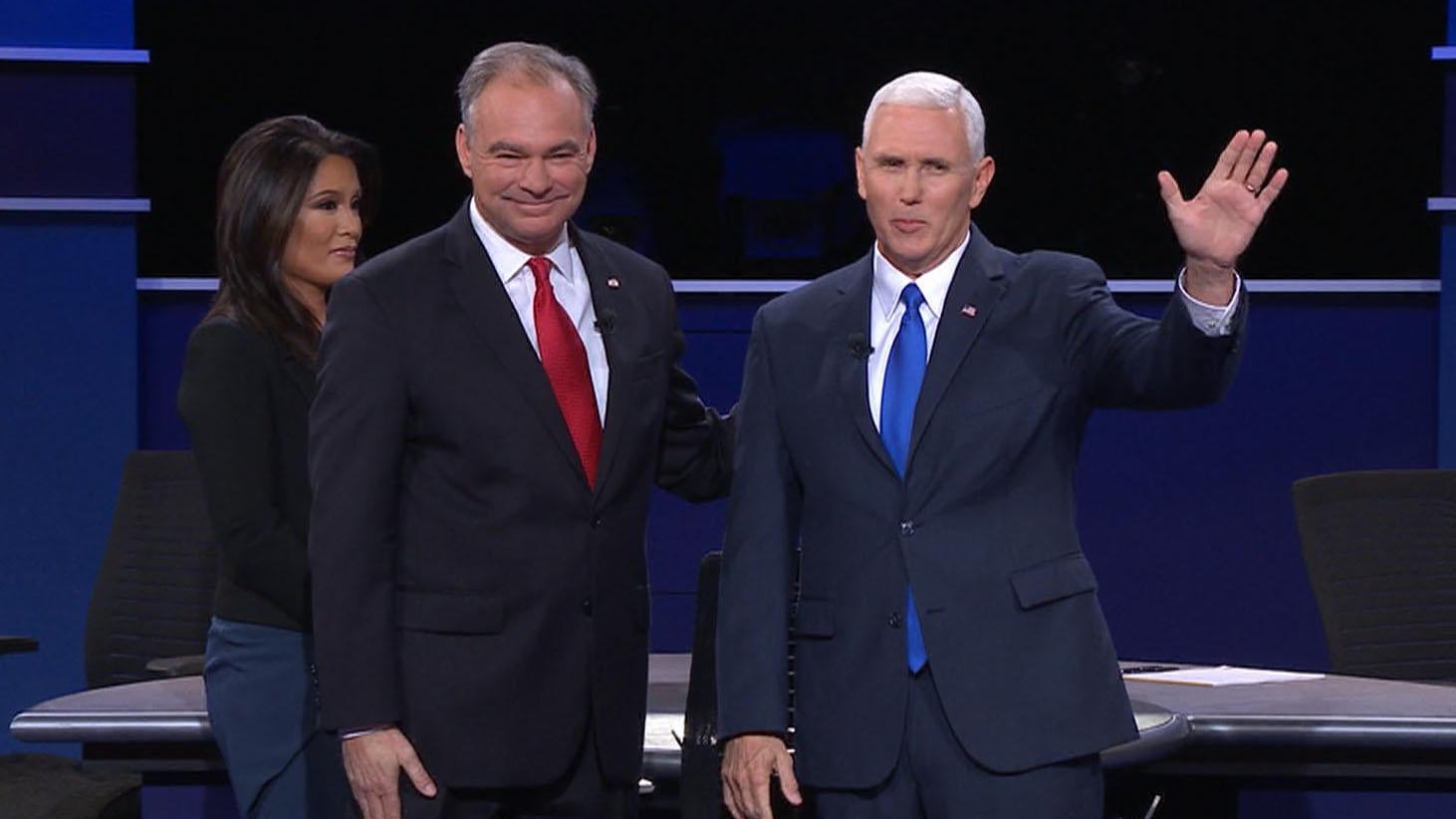Key Moments and Debates: Cbs Vice Presidential Debate

The CBS Vice Presidential debate was a crucial event in the 2024 election cycle, providing voters with a glimpse into the candidates’ visions for the nation and their approaches to critical policy issues. The debate showcased both similarities and stark contrasts in the candidates’ perspectives and communication styles, offering insights into their potential leadership qualities.
Key Policy Issues and Stances
The debate focused on several key policy issues, including the economy, healthcare, climate change, and foreign policy. Both candidates presented their stances on these issues, highlighting their priorities and proposed solutions.
- The candidates discussed the state of the economy, with one candidate emphasizing the need for fiscal responsibility and tax cuts, while the other focused on investing in infrastructure and education to boost economic growth.
- Healthcare was another prominent topic, with one candidate advocating for a single-payer healthcare system and the other emphasizing the importance of private insurance options and market-based solutions.
- Climate change was a critical issue addressed in the debate, with one candidate proposing aggressive measures to combat climate change and the other emphasizing the need for a balanced approach that considers economic growth.
- Foreign policy was also discussed, with both candidates outlining their views on international relations and the role of the United States in the world.
Significant Disagreements and Clashes, Cbs vice presidential debate
The debate was not without its share of disagreements and clashes between the candidates.
- One notable point of contention was the candidates’ differing views on the role of government in the economy. One candidate argued for a more active role in regulating the economy and addressing social inequalities, while the other advocated for a more limited government with a focus on free markets and individual responsibility.
- Another point of disagreement was the candidates’ approaches to healthcare. One candidate supported a single-payer healthcare system, arguing that it would provide universal coverage and lower costs, while the other candidate expressed concerns about the potential for government overreach and argued for a market-based approach.
Communication Styles and Effectiveness
The candidates’ communication styles differed significantly, impacting their ability to convey their messages to the audience.
- One candidate employed a more passionate and assertive approach, using strong language and direct appeals to emotion. This style resonated with some viewers but was criticized by others for being overly aggressive.
- The other candidate adopted a more measured and deliberative approach, focusing on policy details and presenting a calm and collected demeanor. This style appealed to those seeking a more thoughtful and nuanced approach to the issues but was perceived by some as lacking in passion and excitement.
Political Strategy and Impact

The vice presidential debate provided a platform for the candidates to showcase their political strategies and potentially sway undecided voters. This analysis examines the strategic approaches employed by each candidate and explores the potential impact of the debate on the presidential election.
Impact on the Election
The debate’s impact on the presidential election will depend on several factors, including how the candidates’ performances are perceived by voters, the overall political climate, and the media’s coverage of the event.
- If one candidate is perceived as having dominated the debate, it could potentially boost their standing in the polls and increase voter enthusiasm for their campaign.
- Conversely, a weak performance could hurt a candidate’s momentum and potentially lead to a decline in support.
- The debate could also have an impact on voter turnout, particularly among undecided voters who are looking for information to help them make a decision.
Campaign Implications
The debate could have significant implications for the campaigns of both candidates. For example, if a candidate delivers a strong performance, it could provide them with a much-needed boost in momentum and help them solidify their position in the race. On the other hand, a weak performance could damage a candidate’s credibility and make it more difficult for them to win over voters.
- A strong performance could lead to increased media coverage and attention for a candidate, which could help them reach a wider audience and generate more support.
- Conversely, a weak performance could lead to negative media coverage and scrutiny, which could damage a candidate’s reputation and make it more difficult for them to win over voters.
Potential Turning Points
The debate could also serve as a potential turning point in the race, particularly if one candidate delivers a performance that is widely seen as a major success or failure. For example, if a candidate makes a significant gaffe or is unable to articulate their policy positions effectively, it could lead to a shift in the political landscape and potentially damage their chances of winning the election.
“The vice presidential debate can be a crucial moment for the campaigns, offering an opportunity to solidify their message and connect with voters on a personal level.”
The CBS Vice Presidential Debate is a pivotal moment in the political landscape, a time for voters to see the candidates’ vision for the future. Just as the Eagles are soaring with the leadership of Kenny Pickett , we need leaders who can inspire and guide us towards a brighter tomorrow.
The debate offers a chance to hear their plans and decide who will lead us into the next chapter of our nation’s story.
The CBS Vice Presidential Debate offered a platform for discussing critical issues facing our nation. Beyond the political discourse, the event also highlighted the power of advocacy, a quality embodied by individuals like Gwen Walz , the First Lady of Minnesota.
Her dedication to education and mental health serves as an inspiration, reminding us that even amidst political differences, we can unite in the pursuit of a better future for all. The debate, in its own way, became a platform for highlighting these shared values and aspirations, offering hope for a brighter tomorrow.
